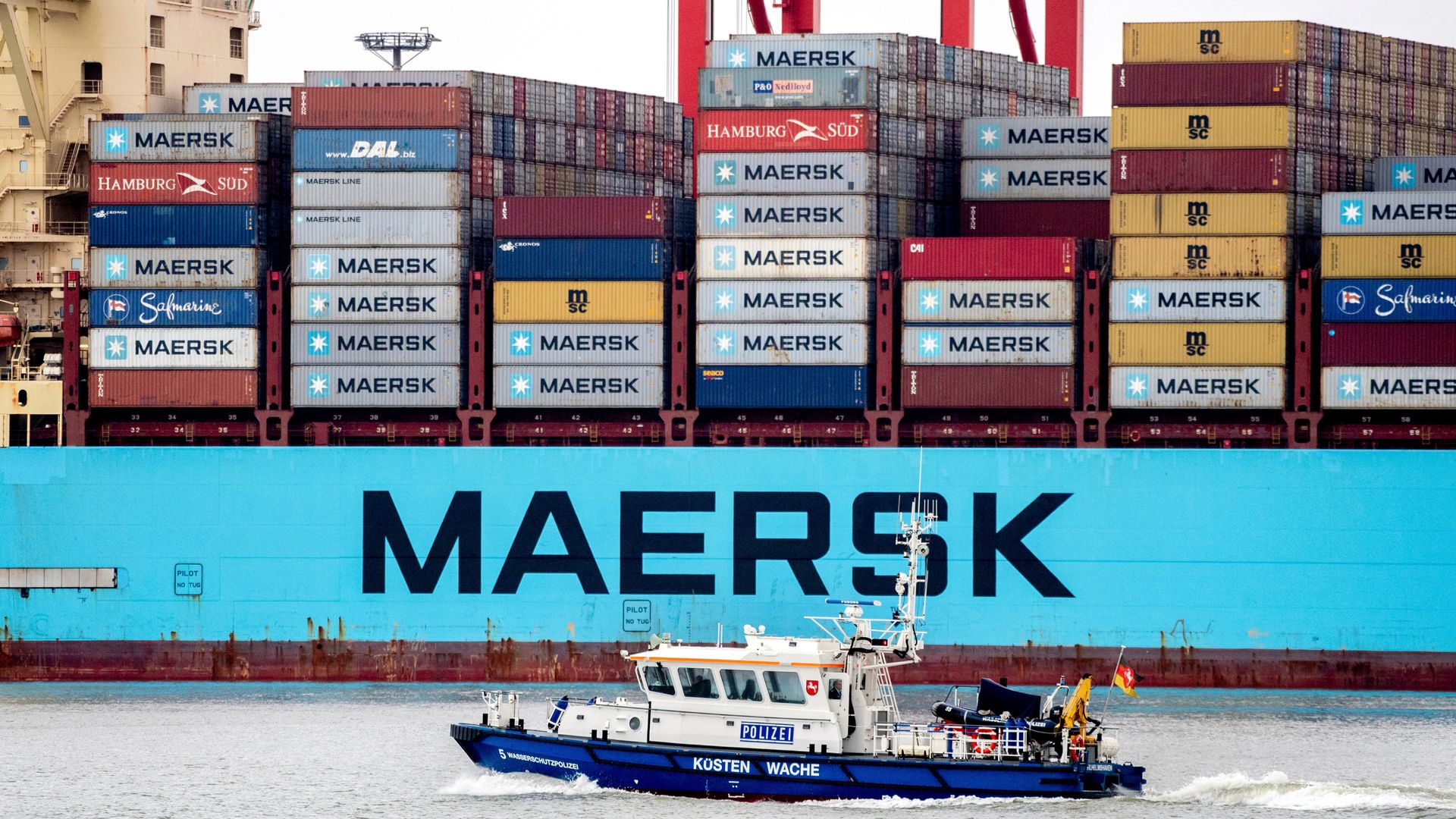The price of shipping has reached an 18-month high – threatening to impact the falling inflation rate.
It is now more expensive to ship a typical container on a key shipping route than when Houthi militants first started attacking boats in the Red Sea late last year to prevent ships docking in and exporting from Israel.
An index that measures the average cost of a 20ft container being shipped from Shanghai to Europe – and is the most widely used measure of freight cost – has reached $3,949 (£3,102).
The Shanghai Containerised Freight Index (SCFI) has risen sharply in the last month according to data given to Sky News by global logistics company, DSV.
Not since the early days of September 2022, when global supply chains were recovering from the blockage of the Suez Canal, has the cost been so high, at $4,252 (£3,341) a container.
Money latest: UK suffers biggest rise in unemployment of any OECD country
The Suez blockage by the Ever Given container ship which ran aground in 2021, kickstarted a steep rise in shipping costs as goods could not move freely along the vital shipping artery, causing chaos at ports and chocking supply lines.
Inflation in UK shops now back at ‘normal levels’ – as prices for some items fall
Headline inflation figure is reassuring – but shouldn’t distract from the ongoing cost of living crisis
The government is taking credit for the inflation rate fall – should it?
Boats having to take alternative journeys and being diverted also brought shipping costs up.
Please use Chrome browser for a more accessible video player
Why it matters
It was this wave of supply chain woes that brought about part of the first shock to the economy that caused inflation, the rate of price rises, to go up.
The economy has recovered in large part from shocks – including the energy price hikes brought about Russia’s invasion of Ukraine – which resulted in inflation reaching a 41-year high of 11.1% in October 2022.
While inflation has dropped significantly – to 2.3% at the latest reading – expensive shipping could bring the rate up.
Most goods on UK shelves spend at least part of their lifetime at sea, so importers having to spend more to get goods to the UK could mean consumers pay more at the tills.
Keep up with all the latest news from the UK and around the world by following Sky News
Why it’s happening – and prices could remain high
Last week, the world’s second-largest shipping container firm Maersk said it expects to have even higher profits than first thought on the back of demand and disruption.
The Red Sea “ongoing crisis” and the “ripple effects on global supply chains” are part of the market, it said.
Business will continue to benefit, it added.
Be the first to get Breaking News
Install the Sky News app for free
Maersk said: “The ongoing threats to commercial vessels in the Red Sea and growing supply chain bottlenecks indicate that this situation won’t improve soon. More capacity than expected will be needed to resolve these issues and stabilise the global supply chain.”








